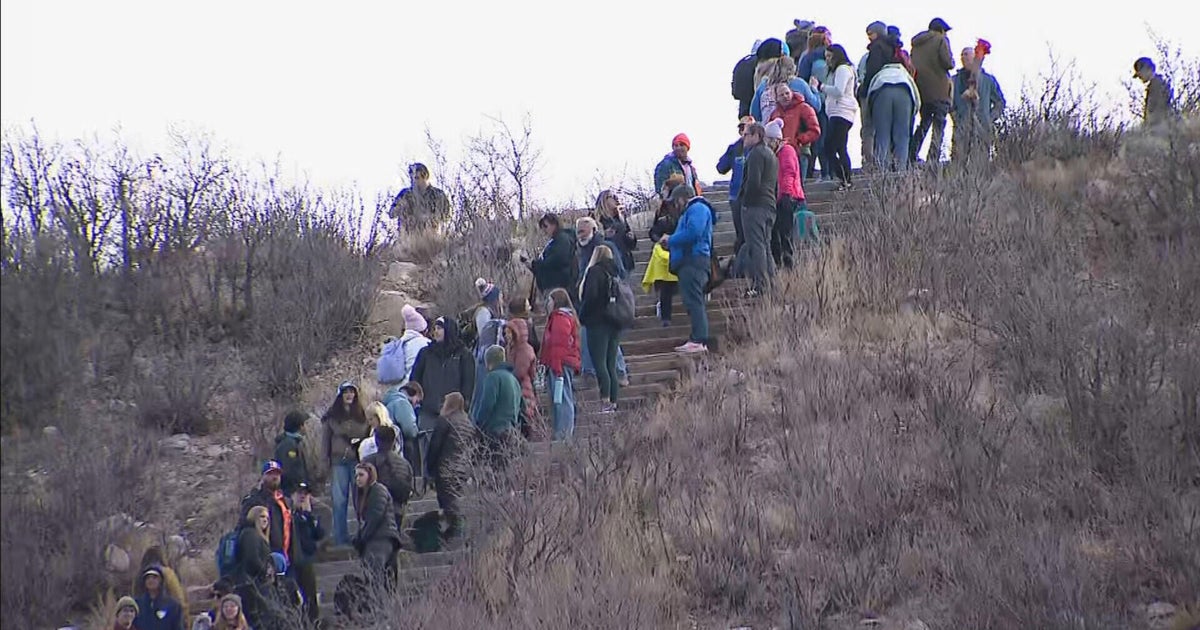Netflix Faces Tougher Times As US Subscriber Growth Slows
LOS GATOS (CBS / AP) -- After years of spectacular success, Netflix is starting to hit some potholes. The internet video service is wrestling with slowing U.S. subscriber growth and an ambitious international expansion amid stiffening competition, a challenge that came into sharper focus Monday with the release of its second-quarter earnings.
Netflix only added 160,000 U.S. subscribers from April through June, its lowest gain in the period since splitting up its video-streaming and DVD-by-mail services five years ago.
Management blamed the disappointing performance on cancellations by subscribers facing price increases of as much as $2 per month, following the expiration of a two-year rate freeze.
Analysts estimate that more than 20 million subscribers may be hit with a price increase between June and the end of this year.
The fallout from those phased-in price increases has been compounded by intensifying competition that now provide consumers an array of alternative streaming-video options.
Netflix fared better outside the U.S., but its second-quarter gain of 1.5 million international subscribers still missed management's projections.
"We are growing, but not as fast as we would like or have been," Netflix CEO Reed Hastings wrote in a letter accompanying the second-quarter results. "Disrupting a big market can be bumpy, but the opportunity ahead is as big as ever."
The company's stock lost $14.36, or 14.3 percent, to $84.45 in after-hours trading. If that loss extends into Tuesday, Netflix shares will have lost a quarter of their value so far this year. That's a harsh comedown for a stock that's been a Wall Street star since bottoming out at roughly $7 on a split-adjusted basis about four years ago.
In a way, Netflix is a victim of its own success. With 47.1 million U.S. subscribers already signed up in the U.S., where they pay $8 to $12 per month, the company is having more trouble finding new households interested in anteing up.
Beyond the U.S., the Los Gatos-based company is sustaining significant losses as it ramps up its business in 189 other countries. Among other things, Netflix has to amass a diverse collection of TV shows and films that will appeal to new audiences speaking a variety of different languages and with divergent tastes.
Its international operations lost $69 million in the second quarter, or an average of about $2 per overseas subscriber. By contrast, Netflix's U.S. streaming service contributed a profit of $414 million, or about $9 per subscriber.
After factoring in its still highly profitable but steadily shrinking DVD-by-mail service and various operating expenses, Netflix earned $41 million, or 9 cents per share, in the second quarter. That nearly tripled its profit of $14 million at the same time last year.
Revenue for the period increased 28 percent from last year to $2.1 billion, driving in part by Netflix's higher prices.
Until recently, Netflix had been capitalizing on its "first mover" advantage -- technology parlance for innovators that embrace a new concept ahead of the pack.
Its head start in internet video meant Netflix was able to license previously released TV series and films at relatively inexpensive rates, in part because studios hadn't yet realized how valuable streaming rights would become.
That's all changed now. Netflix's competitors now include internet-only offerings from Amazon.com, Hulu and Google's YouTube as well as traditional TV networks such as Time Warner Inc.'s HBO and CBS, which now sell online alternatives to their cable and broadcast channels.
At the same time, studios are demanding higher prices for the rights to their shows and films -- and increasingly selling the rights to Netflix rivals willing to pay more.
"Media companies are thinking a lot more about what the real value of their content is and what they should be getting to license it to Netflix," says Andre Swanston, CEO of Tru Optik, an entertainment industry consultant. "That is going to make content licensing a lot more expensive for them."
© Copyright 2016 The Associated Press. All Rights Reserved. This material may not be published, broadcast, rewritten or redistributed.







